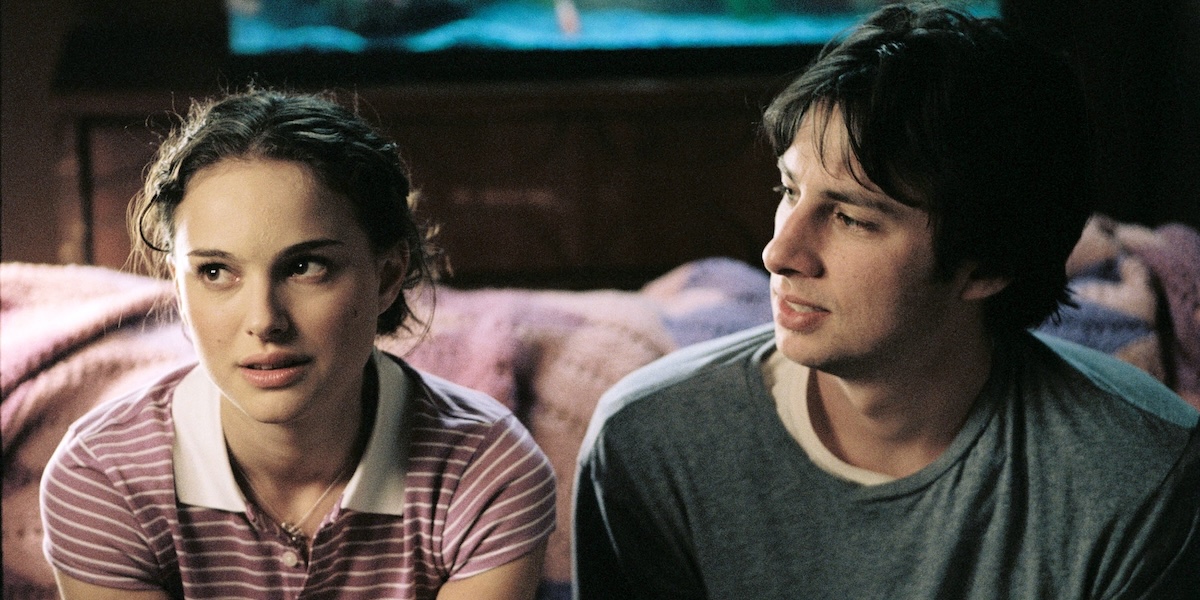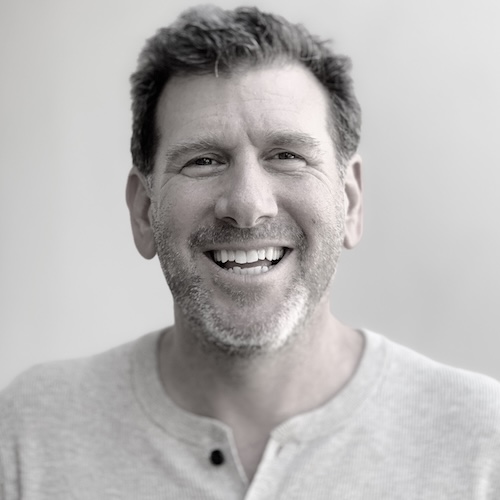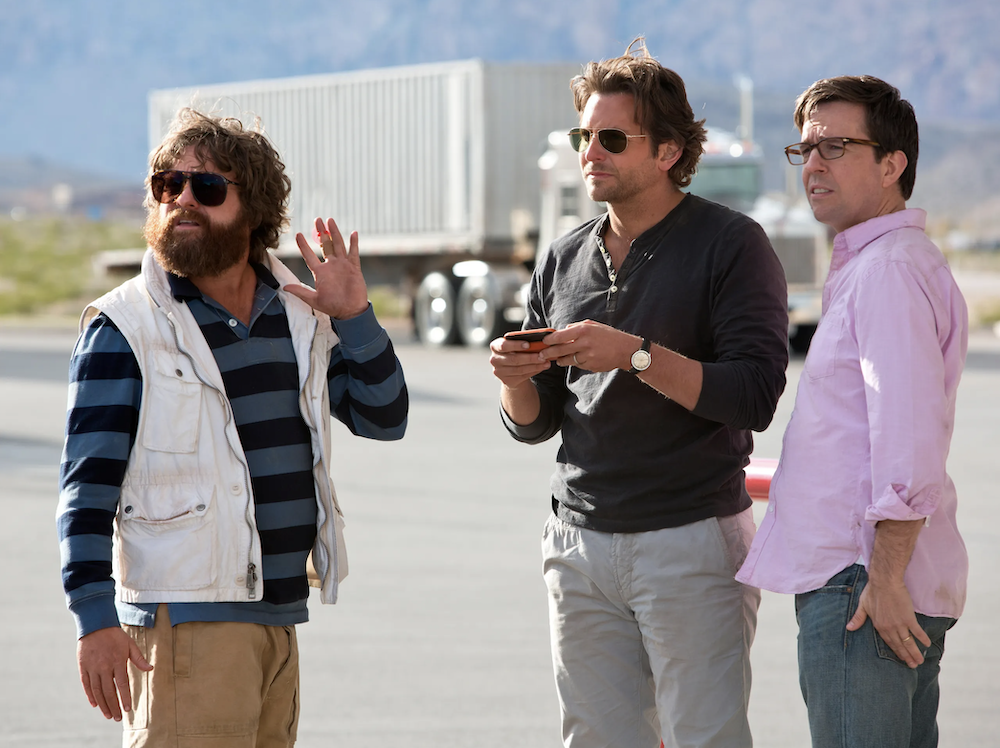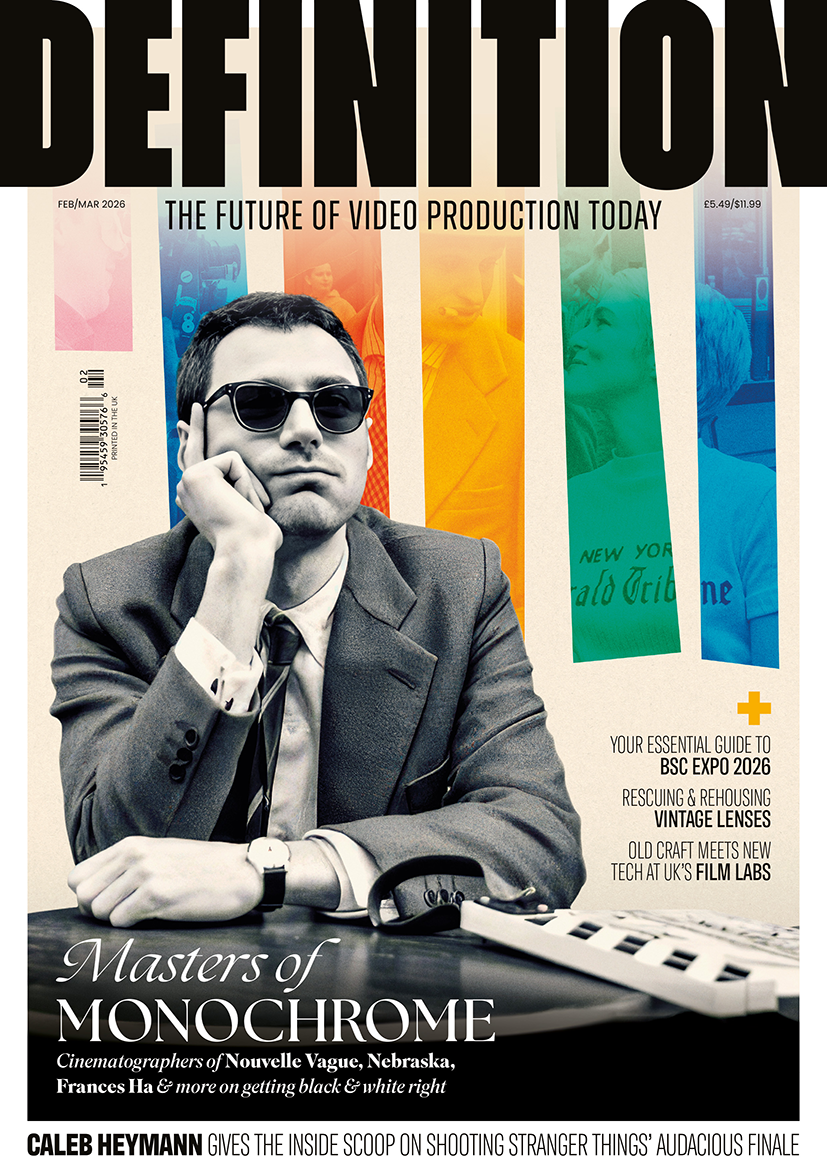
CV stories: Lawrence Sher
Posted on Nov 1, 2023
Lawrence Sher ASC is an American cinematographer and film director best known for his work on Joker, The Hangover and Garden State. He’s recently completed filming Joker: Folie à Deux, and is president of the 2023 FilmLight Colour Awards jury
INTERVIEW Nicola Foley

Definition: How did you get into filmmaking, and what was your route into the industry?
Lawrence Sher: It started with a small interest in photography via my dad. He was a doctor, but had a real passion for still photography. He lent me a camera once for a school trip – I took a bunch of pictures, and I was emboldened by the fact they didn’t stink! It was exciting to look through a lens and think about composition and creativity through that medium. When I went to college, I took a class there that really re-lit that spark – and then it was off to the races. I felt 100% that I wanted to be a filmmaker – and due to my interest in photography, cinematography felt like a natural place for me. I graduated as an economics major, moved to LA and tried to find my way into camera departments as a camera assistant. I took any chance I could to work on sets and to learn on my own – I was always taking pictures and trying to teach myself cinematography, finding chances to shoot. I was taking any job, trying to figure out how to do this thing that I was really passionate about – and I just sort of worked my way up.
Def: What would your top piece of advice be for somebody hoping to break into the industry?
LS: It’s really two things: it’s perseverance and it’s patience. The people I know that have found success and continued to succeed in the industry, frankly, just never gave up. It’s hard, and you’re going to go through a lot of ups and downs. It’s never going to happen as fast as you want it to happen either. So if it’s really the thing you want to do, you will persevere. Be kind to yourself, and remind yourself it’s going to take time. You’re going to see some people go places faster than you, and that’s going to be hard, and it’s going to feel unfair – but you stay on your path. Your journey is going to be your own journey, and you need to be as patient as you can with yourself. I also believe that enthusiasm and attitude will beat skill every time. As long as you can stay positive and be a good source of energy on set, you’ll find people to work with and you’re going to find opportunities.
Def: Looking back on your career so far, what are you most proud of?
LS: It changes. It sometimes follows the success of the movies, because those movies become the things that get you other opportunities. Garden State was the first film that got me a bit of attention, and that allowed me to get into different types of projects. I was really proud of that movie; I’m from New Jersey, so it felt very personal – and I just really enjoyed working on it. After that, there was the success of the first Hangover movie, which was the most important movie of my career at that point. I was obviously very happy with the way it turned out, and when you have a movie that’s very successful like that, it definitely gets you more opportunities. And then there’s Joker – just to be working on that was a dream come true, even without the awards and everything else. Then of course, there are movies that didn’t do well, but were still some of my greatest experiences. I made a movie called The Big Year – nobody really saw it, but was one of the best experiences making a movie that I’ve had in my career.
Def: What have been the biggest challenges you’ve experienced in your career and how did you overcome them?
LS: Every movie is a series of challenges, and that’s one of the things I love about the movie business. The crews are basically the greatest problem solvers in the world – and not only that, but they love having problems to solve! They relish in the process of figuring things out. In terms of specific challenges I’ve faced… I once directed a movie that didn’t do great, and got beaten up by the critics. That served me because I stood back and thought, what am I supposed to learn from that, that I can take forward and do better next time? It’s all part of the journey; part of pushing yourself and taking chances – not just taking the path of least resistance. Whenever you do that, you’re going to risk failure. Something I appreciate about Todd Phillips – who I’ve done seven movies with, including Joker – is he’s always taking risks. We’ve got the new Joker coming out next year and we’re just finishing up post-production on it. This movie is a big swing and it’s going to be really surprising to people. I’m so excited for everyone to see it.

Def: What career ambitions would you still like to fulfil?
LS: I want to direct again, definitely – I’ve continued to refine that skill so I would like to revisit it. From a shooting standpoint, I want to find things that scare me, things that feel like a creative challenge, and to work with really interesting people. I’m going to continue to seek out those opportunities. I’ve also got a venture called ShotDeck, which is a really incredible database of imagery for filmmakers. Starting that has been a really fun challenge, feeding that economics brain of mine that went to college, and doing something more entrepreneurial – I’ve learned a whole bunch of new skills and that I didn’t even know I had to learn. It’s really fulfilling, and it’s become really a great tool for filmmakers, students and for people across all creative industries. It was something that needed to exist, and it’s great to see it succeed.
Def: Is there anything you’d do differently in your career if you had the chance?
LS: It’s such a good question. And it’s funny because I really can’t think of anything – I take all the ups and downs, and even if something didn’t feel great in the moment or I felt I failed in some way, I usually learn something. There are so many things you can’t control; all you can do is continue to work on yourself as a human being.
Def: What motivates you?
LS: For me, now, it’s all about taking some level of risk, and feeling inspired by the work that I’m doing. That’s it. Whenever I’m presented with something, I have to find that thing that makes me feel challenged and excited and inspired. And if that’s present, then it’s worth doing – and it gets me excited about that project from beginning to end.
Def: What do you think are the biggest challenges and opportunities facing the industry as a whole at the moment?
LS: Obviously, there are things like AI – I’m not as worried about it as others; I feel like it’ll have a place, but time will tell how that looks. The big one for me – since 90% of what I do is make movies for the theatre – is to make sure this generation continues to embrace all the things that make the theatre great. The Barbie and Oppenheimer thing was great, and those things get me excited. I want to make sure the whole experience of going to see a film on a big screen, with popcorn and other people, doesn’t falter; that it lives on. Covid-19 scared the hell out of me for that reason, but it’s been nice to see people return to the theatre.
This interview appears in the November 2023 issue of Definition.









